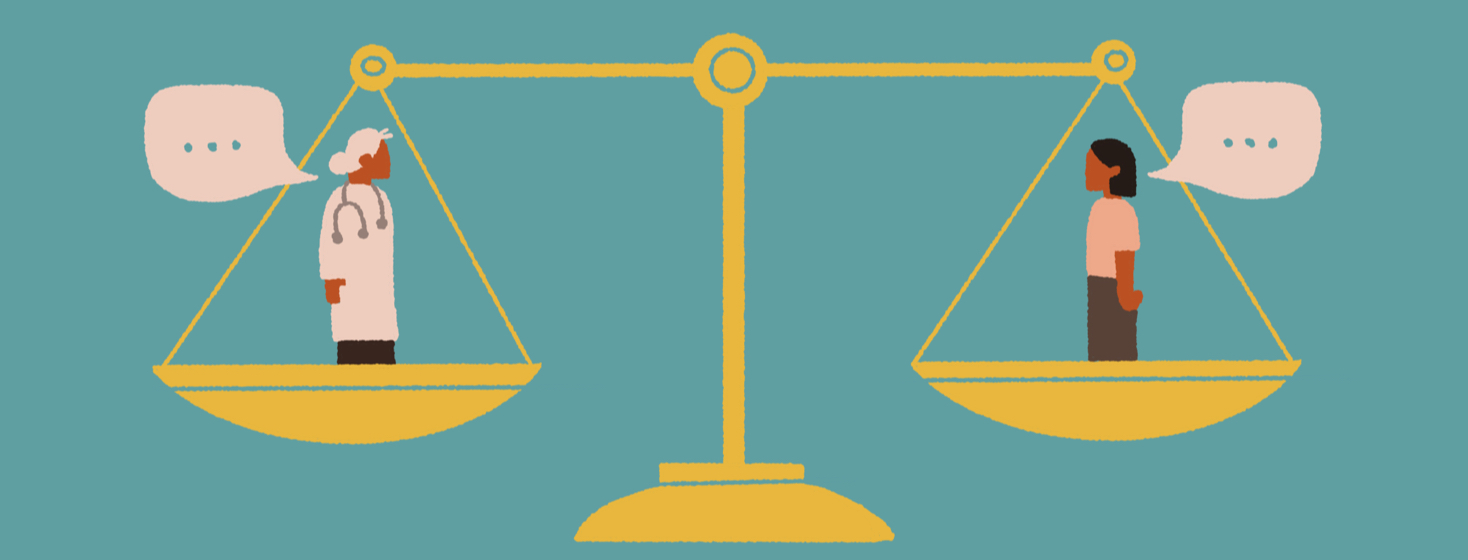Patients Must Make Decisions Together with Doctors
I was diagnosed with lung cancer metastatic to the brain. I’m lucky that my medical team has been competent and stable for the past six years, and we have been getting along well. From my own experience, I believe that making medical decisions with doctors is very important as a lung cancer patient. Meanwhile, the patients have to be self-educated.
My first doctor from my gamma knife procedure
I found the brain tumors first and then diagnosed with lung cancer metastasis six and a half years ago. So right away, I started GKP (computer-guided, highly focused radiation treatment to brain tumors).
I had four GKP done and experienced two amazing doctors. The first one is a radiologist, and another is a brain surgeon. My first GKP doctor always answered my husband’s questions with an unforgettable smiling face. Sometimes I felt that his smile and my mode of extremely dark future were a sharp contrast. Each time I went to his office, I didn’t want to leave as if he was my lifesaver. Yet, I always followed him and thought he was always right, no doubt.
Three months after he did my third GKP, I was about to see him for a check-up. I got a phone call from his department canceling my appointment and later I knew that my doctor was on a cruise and got an accident. Something hit his head, and he lost consciousness, and then he lost his memory. I just felt numb and asked myself, “Is it me always bringing people misery?”
During these three years, I was in a panic mood about my diagnosis and never thought about getting involved in any medical decision-making. But luckily, my husband was carefully following the doctor.
My second GKP doctor
I had my fourth GKP also in my fourth year of the lung cancer journey. At this time, I had come out of my depression and was involved in advocacy, especially research advocacy. I read many medical papers and attended many medical conferences and doctors’ talks.
I had a new growth in my brain. The doctor, a brain surgeon, gave me two options, the GKP again and the surgery. He explained the pros and cons and left the decision to me, but I clearly understood that he preferred the surgery. I “systematically,” asked him many questions about both procedures, his expertise, post-surgery care, medical malpractice... He answered all my questions, and he was surprised that I was self-educated and knew a lot. Finally, after almost a two hours discussion, I convinced the doctor for GKP. My husband later told me that he was impressed by my rationale and calmness.
I had the GKP for the fourth time, and it has been three years that my brain tumors haven’t grown. As a matter of fact, in the last three MRI scans, the surgeon is quite amazed that the one brain tumor he operated on has been shrinking, and in the last MRI scan, the same brain tumor has disappeared.
Takeaway lessons about decision making
I learned two lessons. One is that making the decisions with the doctors is the most important. It doesn’t mean that doctors are wrong. It just means that we know our bodies the best and listens to our gut feeling. The second lesson, which is equally crucial, is self-education and self-advocacy. I was a different person now than three years ago, and I have kept up with the current development of lung cancer and brain tumor research. I want to emphasize that the essence of making medical decisions together is not who is right or wrong. The essence is what’s more suitable for my health. Who is more qualified to judge it than me.
I have one more plan to seek a second opinion from the top-ranked doctors for my disease. Although I haven’t pursued a second opinion yet, I have talked to doctors from other institutes. Self-advocacy is crucial, and it is never too late.

Join the conversation